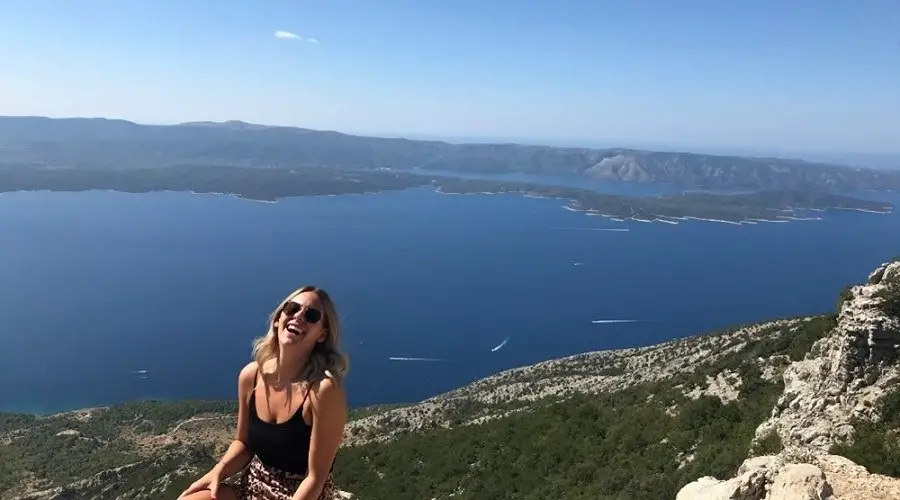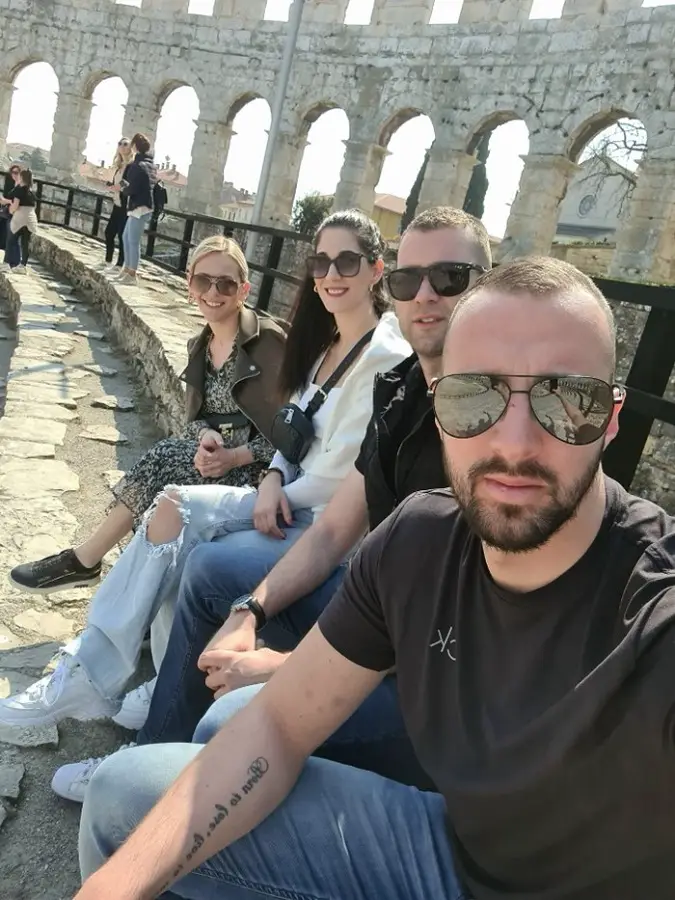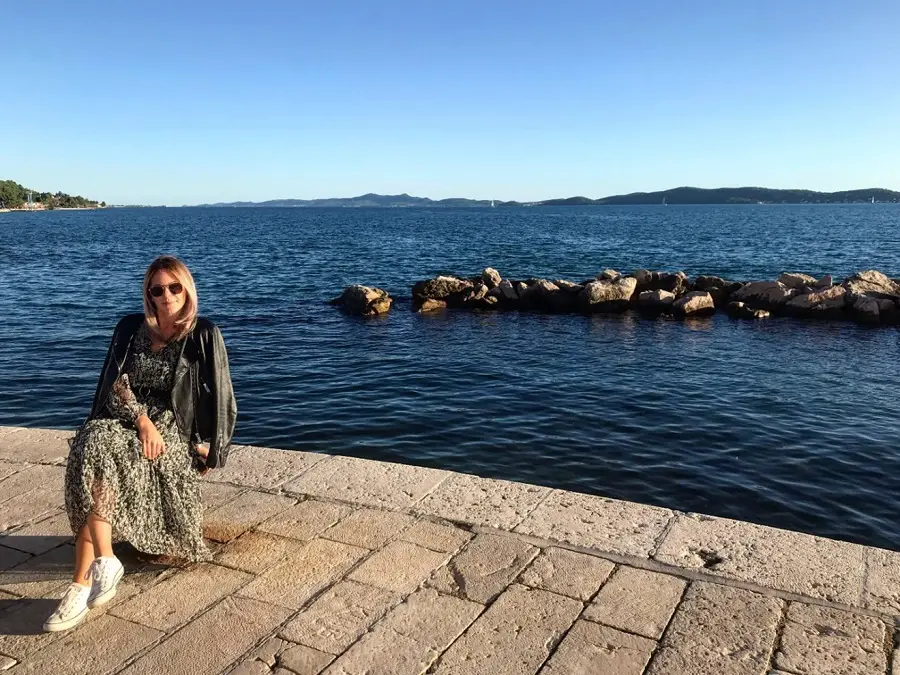
I was born and raised in Hamilton, Ontario, Canada, by Croatian parents who moved from Slavonija in December of 1989. I lived in Hamilton for 27 years, working as a Dental Assistant for 10, during which time I decided to go back to university and change my career path. After receiving my degree in Business Management and Marketing, I was introduced to a Company in Toronto that specializes in the development of Surgical Navigation Solutions. I immediately went through an interview process and boom-started my new job a few weeks later. I was happier than ever, but there was still something missing from my life. I was tired of commuting; I was tired of constantly trying to prove something to people around me. I was tired of the go-go-go lifestyle. I needed to slow down; I needed a change. I was getting fulfillment from my job, but that was the only place it was coming from. And to some, that may be enough, but to me, it wasn’t even close to enough. And that’s where Croatia comes in. Here I am, 3.5 years later, sitting in front of my laptop answering these questions from Zadar, where I get to have a coffee by the sea every day and enjoy life.
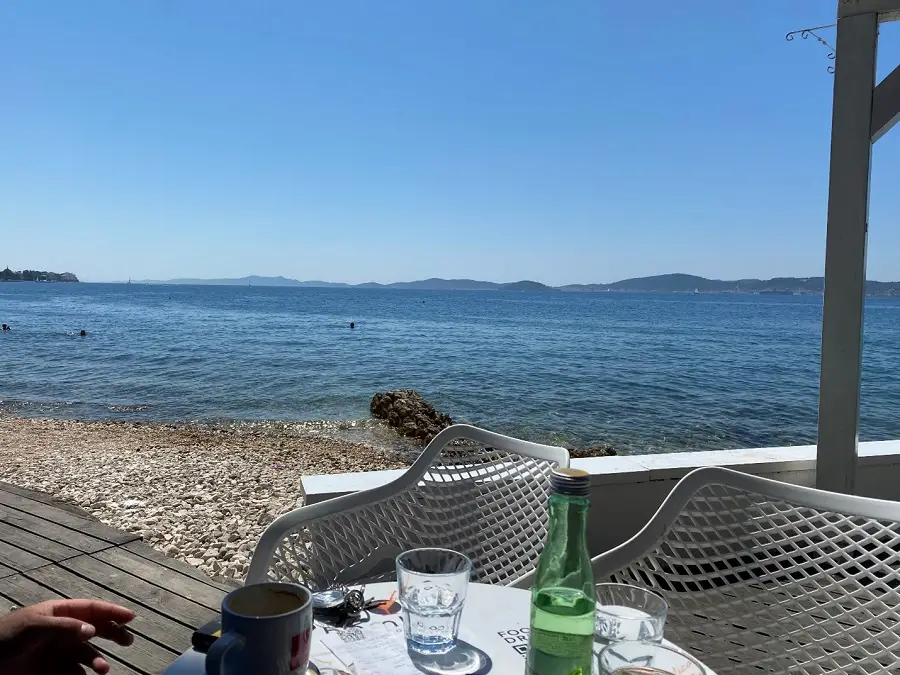
1. You made the switch to Croatia. Tell us a little about the decision process and how long it took for you to get on the plane.
I have wanted to move to Croatia since I was 16 years old. My father was a very proud Croatian, always pushing my brother and me to speak the language with our family and friends and to continuously learn about our heritage and roots. In our house, only Miso Kovac and Kico Slabinac could be heard playing on the radio. We traveled back as a family only once after the war in 1995. After that, all of my trips to Croatia were solo 3-month summer vacations. I would spend most of my time visiting my family in Slavonija, it was my favorite place to be and still is! I learned a lot about how my parents grew up and what they and my grandparents had to do to survive. Life for them was hard, but they were happy! They had everything they needed and more. And that was what I was searching for, happiness. To see someone truly happy, in my opinion, is rare. Canada is not what it used to be in the late ’80s and early ’90s, full of opportunities, “the American dream,” as they used to call it. These days, people are so focused on what material things they have, which car they’re driving, and who lives in a bigger house. What they are not focused on is living their life to the fullest and truly enjoying every single day.
The final decision came in my late 20’s when my partner at the time and I decided to take a Euro trip to scope out different countries and get a feel for what life could be like in Europe as an adult who is not on vacation. Of course, Croatia was always my first option, but the decision on where I would go first was in the hands of my partner, who was job searching. We took the trip in August of 2018. In December of 2018, he was flown into Germany for a weekend to interview for a job, which he practically accepted on the spot. And that was that we were moving to Europe! By March 2019, I was living in Germany. One step closer to Croatia.
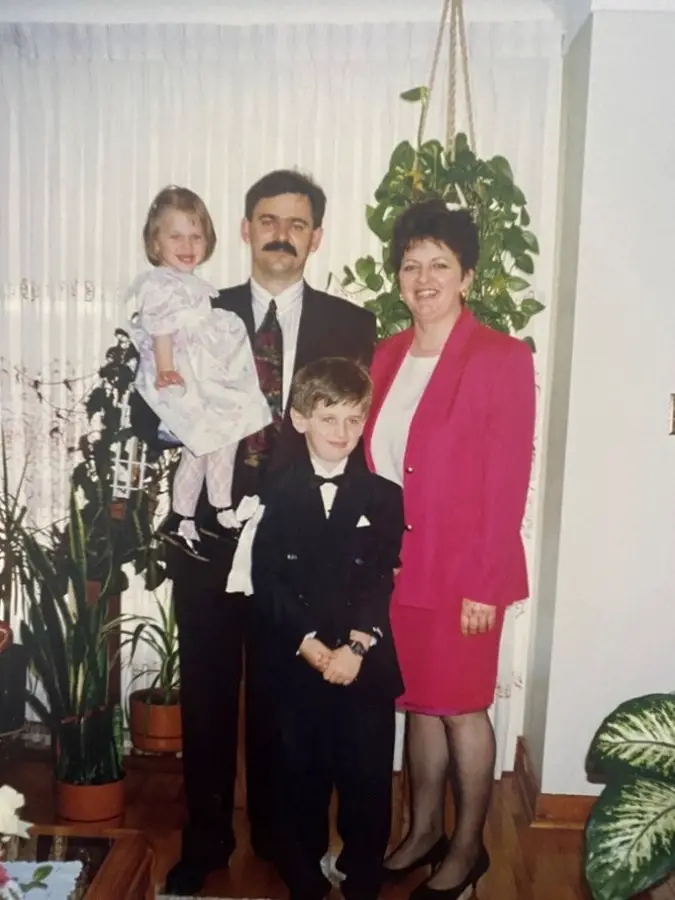
2. What did your family and community back home think of your decision at the time?
Even though my first destination was Germany, my family was my biggest support, especially my father. I felt as though I was finally living out his dreams. Moving back was something we always talked about as a family, but the timing was never right for the four of us. Both of my parents and my brother were extremely proud of the decision I was making.
The company I work for was also one of my biggest supporters. I consider myself very fortunate to work for a company that allows me to chase my dreams and supports me every step of the way.
Everyone else just thought I was Crazy, and they did not hold back on telling me that. Questions and comments were thrown at me from every direction. “You’re nuts, Anna” was a classic. “What are you going to do there?”. When I finally moved to Croatia in June 2019, the comments were: “Everyone from Croatia is moving OUT of the country, and you’re moving in!”. It was tough to hear the negative reactions of those close to me, but all I kept saying to myself as I am doing this for myself. Don’t get me wrong; it was a complete nightmare in the beginning. There were countless times when I sat on the bridge in Sibenik crying, asking myself why I came here. Those days were often after dealing with the Croatian bureaucratic system, or what there is of it anyways. When they say “Uvijek jedan papir fali” (One paper is always missing) they aren’t lying!!!
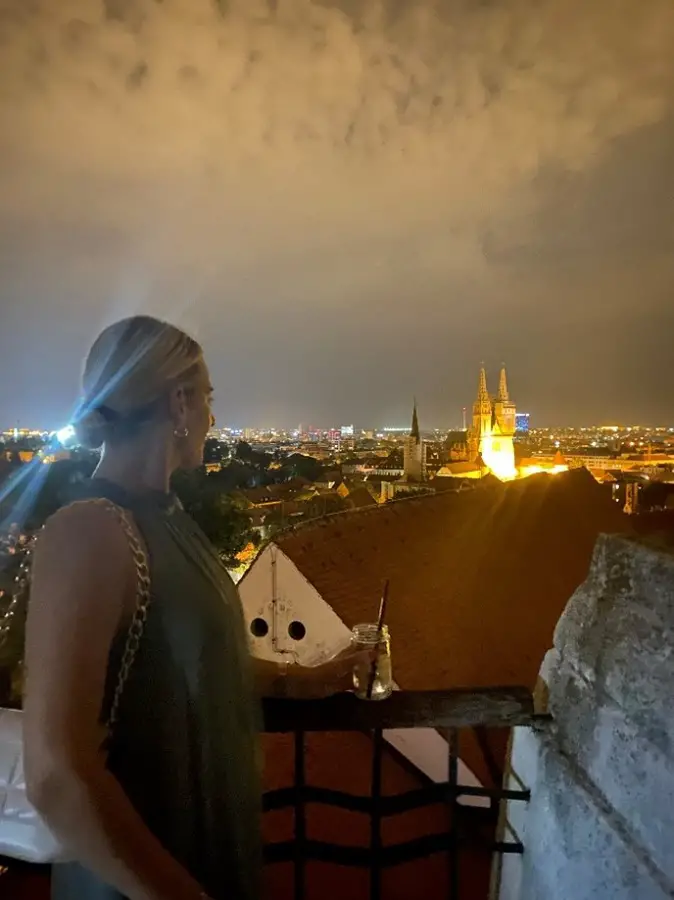
3. Where did you get your information about the realities of Croatia prior to coming?
If I’m being completely honest, I didn’t. And I had no idea what was waiting for me. I did not know any returnees to ask them what it was like. Of course, my family in Croatia also thought I was crazy for moving here. However, they did not understand the harsh reality I was coming from. In Croatia, people complain all the time about how the life they have here is not ideal and that they dream of leaving this Country to make a better future for themselves. The problem with that is, any country you move to, be that Germany, Austria, or Canada, you’re still going to have to work your ass off to get what you want and to make something of yourself. They didn’t know that I was commuting on a 6-lane highway for 3 hours in one direction from Monday-Friday and that most of my days were spent in my Car. They didn’t know that I had to call my friends and “book” a coffee or dinner date weeks in advance because nobody had time. They especially didn’t know what 2 meters of snow and minus 30 in December looked like!
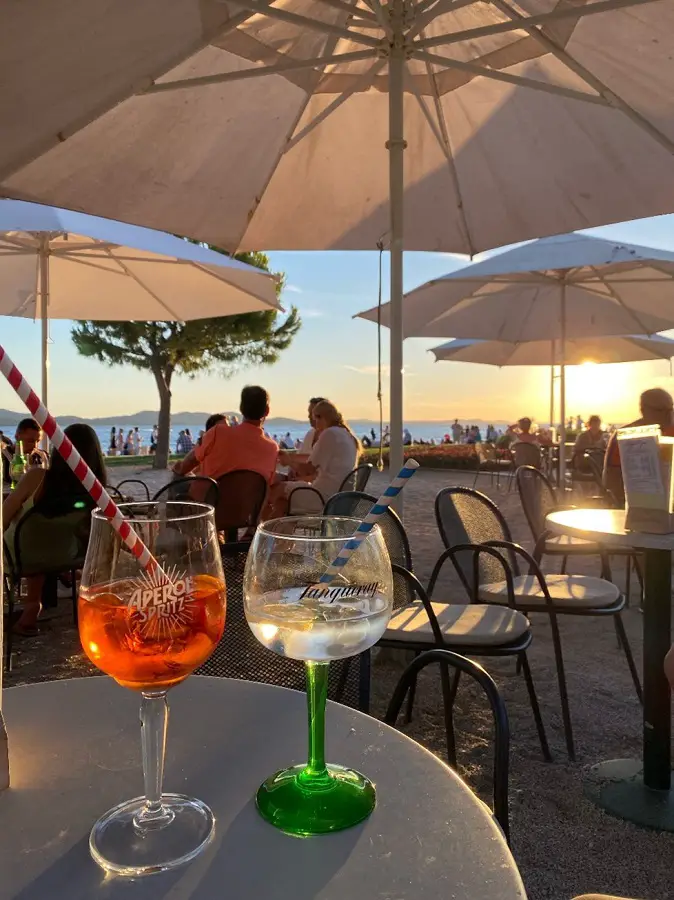
4. What were you most nervous about making the switch? What was your biggest fear, and what was the reality of what you found?
I honestly can’t say that I had any fears about coming to Croatia, or Germany for that matter. I was ready to embrace change and accept Croatia with my arms wide open. And with that attitude, I was accepted by everyone and welcomed wholeheartedly by the people with who I have crossed paths during my time here.
5. Think back to the time before you arrived. What were your perceptions about Croatia, and how were they different from the reality you encountered?
Every time I left Croatia after one of my trips, I would always cry on the plane and wished I was staying longer. My perception had always been that no matter your financial position, people are generally happy and content with their lives. They don’t have much, but there are always 10 kunas in their wallet for a coffee. The people here they’re not living to work, they are working to live. That perception has not changed since I’ve been here. If anything, it has become more apparent. Of course, people work hard and value their jobs, but their lives are filled with love and happiness, not dollar signs.
6. You are still here, so obviously, the pros outweigh the cons. Tell us about some of the things that you love about being in Croatia, as well as some of the things you don’t like.
If I could describe Croatia in one word, that word would be Laganini (Easy). There is not as much pressure put on one here as there is in North America. Life is relaxing and enjoyable. I love that every day, no matter the season, I can walk to the Sea, enjoy a coffee on the beach, and take in the breathless beauty of this amazing Country. No matter where you go, the people are friendly and always smiling. Neighbors are always happy and willing to lend a helping hand.
However, behind all of Croatia’s beauty lies the very disorganized bureaucratic system. In Canada, I was used to going to Service Ontario, where I could get my health card, driver’s license, and car sticker renewed all by one person in one day. In Croatia, it’s almost impossible to get someone on the phone or to get information about the papers you need to renew. Never mind the fact that there are about 3 different places you need to visit, and 5 different people all somehow doing the same but different job that you need to speak with before you can even go to the police station to renew a personal document.
7. What advice do you have for others thinking about making a move from the diaspora?
There is no better time to do it than now. Stop waiting for tomorrow or Friday. Stop waiting for your kids to grow up or to get that better job. Life doesn’t wait for you, and time moves quickly. Trust me; it will be the best decision you ever make!
8. How do you think Croatia can better assist those who are looking to return to the Homeland?
I think one of the biggest things Croatia lacks is marketing. By simply opening their platforms to provide the information people are looking for would be one giant step in the right direction.
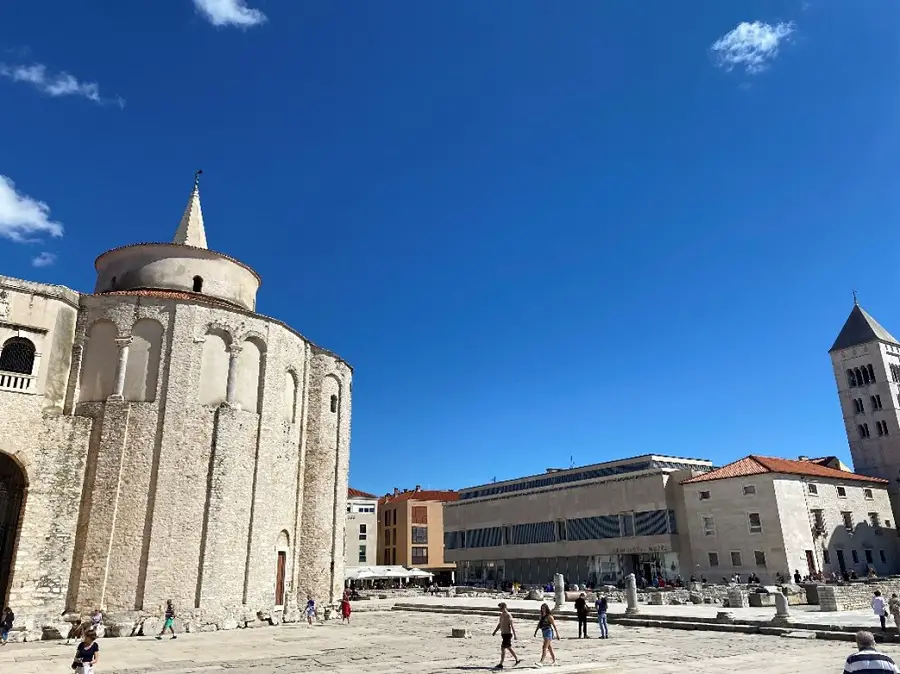
****
Thanks, Anna!
You can follow more stories in the Croatian Returnee Reflections series in our dedicated TCN section.
Would you like your returnee story – positive or negative – to be featured in this series? Contact paul@total-croatia-news.com Subject Returnee.
****
What is it like to live in Croatia? An expat for 20 years, you can follow my series, 20 Ways Croatia Changed Me in 20 Years, starting at the beginning – Business and Dalmatia.
Follow Paul Bradbury on LinkedIn.
Croatia, a Survival Kit for Foreigners will be out by Christmas. If you would like to reserve a copy, email paul@total-croatia-news.com Subject 20 Years Book

